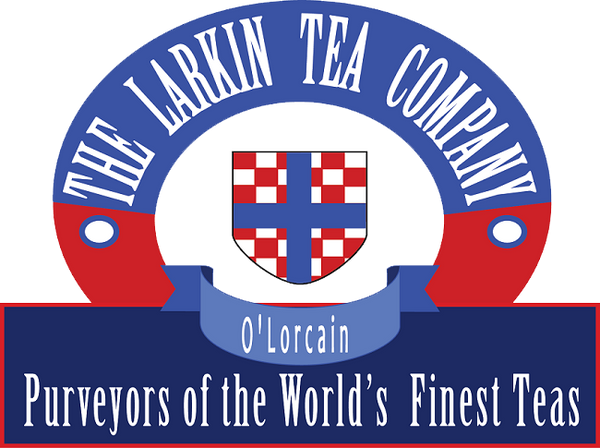TEA & DRY JANUARY
"Dry January" is a public health campaign that encourages people to abstain from consuming alcohol for the entire month of January. For those who may have overindulged during the holiday season, Dry January provides an opportunity to reset drinking habits and develop a more mindful approach to alcohol consumption.
If you're wondering whether tea can help during Dry January by serving as an alternative to alcoholic beverages, then yes, it can be a helpful and comforting choice.
Here are a few ways tea can be beneficial during Dry January:
- Alternative to Alcoholic Drinks: Tea provides a warm and flavorful beverage option that can be a satisfying substitute for alcohol. There are hundreds of types of tea with unusual flavors and caffeine levels, so you can choose ones that suite your taste preferences and energy needs.
- Hydration: Staying hydrated is crucial. While water is the best choice for hydration, tea can contribute to your overall fluid intake.
- Relaxation: Tea has a soothing and calming effect, which can be beneficial if you are looking for a way to relax.
- Heath Benefits: Teas has many health-promoting properties. For example, it is rich in antioxidants.
- Routine and Ritual: If you’re used to having a drink as part of your routine or socializing, tea can offer a non-alcoholic alternative that still provides a sense of ritual and comfort.
TEAS TO TRY ACCORDING TO YOUR PREFERRED TYPE OF ALCOHOL:
BOURBON drinkers will want options with robust flavors and complexity that can complement the rich and bold characteristics of bourbon.
Here are some tea options for people who enjoy bourbon:
KEEMUN TEA is a Chinese black tea with a winey, fruity, and slightly smoky flavor, making it a good match.
TI KUAN YIN has hints of roasted, nutty and sometimes fruity notes often liked by bourbon drinkers.
CHAI with its bold spices can provide a warming experience similar to the spice notes in bourbon.
GIN is known for its complexity and the variety of botanicals it can include, such as: juniper, citrus peel, coriander and floral or herbal notes. Here are teas we recommend for gin enthusiasts:
EARL GREY is flavored with bergamot oil, giving it a distinctive citrusy and slightly floral aroma that can mirror the citrus and floral notes often found in gin.
JASMINE GREEN TEA has fragrant, floral notes reminiscent of the floral botanicals in gins. It has a delicate, aromatic quality that aligns well with the nuanced flavors of gin.
SENCHA GREEN TEA offers a balance of sweetness, bitterness, and umami, which can be appealing to those who appreciate the complex flavor profile of gin.
SCOTCH is known for its range of flavors, from smoky to peaty to smooth and fruity. Here are some teas that might appeal to Scotch drinkers:
LAPSANG SOUCHONG is a classic choice for Scotch lovers. It is a black tea that is smoked over pine wood, giving it a distinctive smoky flavor reminiscent of the smoky notes found in some Scotch whiskies.
ASSAM TEA is a robust black tea from India, known for its rich malty flavor, which pairs well with the full-bodied and slightly sweet characteristics of many Scotch whiskies, especially those that are more malt-forward.
OOLONG TEA has a complexity ranging from light and floral to dark and roasted, can be appealing to Scotch drinkers. The darker, more oxidized oolongs might especially resonate due to their depth and sometimes woody or nutty notes.
PU-ERH TEA is a fermented Chinese tea known for its earthy, rich flavors. Its depth and unique taste profile can mirror the complexity and often earthy undertones of Scotch, especially older or more nuanced varieties.
DARJEELING, which is referred to as the “champagne of teas” has a sophisticated, muscatel flavor that can appeal to drinkers who appreciate the nuanced, fruity, and floral notes found in some Scotch varieties.
VODKA: If you enjoy vodka, your preference for certain types of tea might align with characteristics you appreciate in vodka, such as clarity, purity, and the ability to be a versatile base for a variety of flavors. Here are some teas that might appeal to you:
GREEN TEA has a clean, fresh taste that can be quite subtle, much like the smoothness of a good vodka. It also offers a wide range of flavor profiles, from grassy to slightly sweet, which might appeal to someone who appreciates the nuanced flavors in different vodka brands. Try: Sencha, Green Jasmine, or Jasmine Pearls
WHITE TEA is known for its delicacy and light flavor profile, akin to the refined and mild characteristics of high-quality vodka. It is minimally processed and has a gentle, naturally sweet taste. Try: Silver Needles or Phoenix Moonlight
HERBAL INFUSIONS are good for people who like vodka cocktails with various herbs and infusions. They offer a vast range of flavors and can be enjoyed for their aromatic qualities. Try Dragon Fly Song or Hibiscus.
OOLONG TEA offers a sophisticated and varied flavor profile and is good for people who appreciate the complexity of vodka. Try: Ti Yuan Yin, Tung Ting, or Black Dragon
BLACK TEA is versatile and can be enjoyed plain or with additives, similar to how vodka can be sipped neat or used in cocktails. Try: Earl Grey, Assam, or the various Breakfast Blends.
While tea can be a helpful part of Dry January, it’s important to remember that everyone's preferences and needs are different. If you have specific health concerns or questions about alcohol consumption and its impact on your health, it's advisable to consult with a healthcare professional. Additionally, if you're looking for alternatives to alcohol as part of a broader health or wellness goal, incorporating a variety of non-alcoholic beverages and engaging in activities that bring you joy, and relaxation can contribute to a successful and fulfilling Dry January experience.


